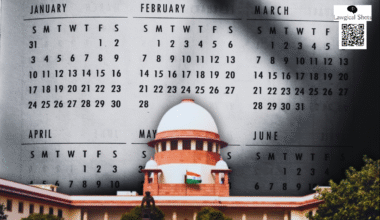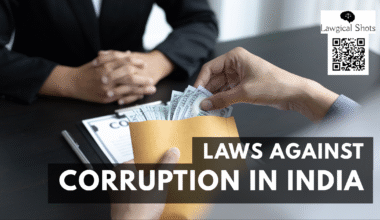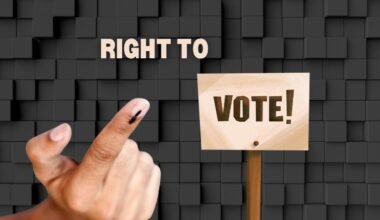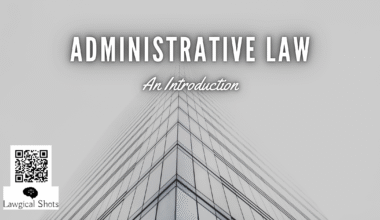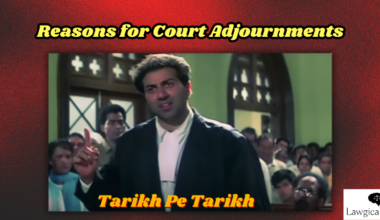Social media has become vitally important in people’s life in these times. It brings together technology, social interaction and communication. It paves way for us to share our opinions and thoughts through movies, music, pictures and words. It provides the people with freedom to post anything on the platform and to express the opinions freely, as guaranteed by Article 19(1)(a) of the Indian Constitution. However, it has also been progressively used for unlawful acts. The existing legislation in India is neither appropriate nor adequate to address this issue. Hence, it is the need of the hour to frame appropriate social media laws. The laws imposed should be in such a manner that they do not become a hindrance to the citizen’s Right to Freedom of Speech and Expression. This crossroad of Social Media and freedom of speech raises important legal considerations, as discussed hereunder.
Freedom of Expression and Restrictions
The Right to Freedom is a fundamental right guaranteed by the Indian Constitution. All the citizens have the liberty to live and work freely in India. The Constitution protects the rights of individuals. It involves various freedoms such as the freedom of speech, freedom of expression, freedom of assembly, freedom of association, freedom of movement, and freedom to practice any profession or occupation. However, the Constitution provides for certain restrictions on the exercise of these freedoms in the interests of public order, morality, and national security. For instance, speech that encourages violence is not protected under the Right to freedom of speech and expression. The sole purpose of this right is to help people to express their opinions freely without any fear. The Freedom is not absolute and can be restricted in certain circumstances. Any kind of restrictions and regulations must adhere to natural justice.
Responsibility While Expressing
The saying that “with freedom comes responsibility” means that we should use our freedom in a way that respects other’s rights and feelings. Understanding how our actions can affect others choosing a certain way to act that respects their rights and well-being is responsibility.
However, spreading false information on social media can lead to serious problems. Social media has also been used to spread hate and encourage violence. For example, during the Capitol Hill riots in the United States in 2021, social media platforms were used to organize and spread misinformation. Extremist ideas have also been shared online without control. That’s why it’s very important to regulate social media—to protect people’s privacy, ensure data security, and prevent harm.
Freedom of Speech before Social Media Era
Before the era of social media, freedom of speech was limited and often confined to inaccessible mediums. Newspapers, radio, television and face to face interaction were few mediums of public expression. However, for more than half the population—especially those in rural areas—freedom of speech remained largely a right on paper, with limited real-world access or impact. The silence of the offline world demanded a different kind of courage to break. It was slower but perhaps more deliberate. Speaking out took effort, courage, and often a real world presence. The absence of instant virality meant ideas evolved more patiently, through conversations rather than comment sections. It was a time when freedom of speech wasn’t about reach, but about resilience. Today’s digital space has raised multiple voices resulting in hate speech and life threats.
Scope of Freedom of Expression on Social Media
Freedom of speech on social media platforms is a double edged sword. Social media has opened up a whole new world for expressing our thoughts and ideas. A new stage is given to people all over the world, to speak up, share their views and stories, and connect with people across the globe. It has made these voices reach thousands- even millions- within seconds. In the past few years, it has been observed that people are advocating for change, justice and equality. Today, any “Tom, Dick, or Harry”—regardless of educational background, social status, or political awareness—can post opinions, comments, or content online through platforms like Facebook, X (Twitter), Instagram, Reddit, Quora, YouTube, and WhatsApp. This has transformed the digital space into a global town square, where virtually anyone can be heard. It became a platform for the unheard to amplify their voices. For example: Social Media helped fuel movements such as #MeTooIndia and #JusticeforSSR, enabling mass
participation. In the past, victims and survivors often had no opportunity to speak out—but now, they are finding the courage and support to come forward. This reflects the true power and potential of these platforms to raise awareness, build solidarity, and drive meaningful change.
Role of Social Media in Misusing Freedom of Speech
While we have discussed in detail the scope, it is important to note that the freedom of speech is not unlimited. In a democracy, people have the right to speak freely, vote, take part in public discussions, and question their leaders. Problems arise when speech encourages violence, spreads false information, or harms others. For example, hate speech—which targets people based on their race, religion, or sexual orientation—can lead to social hatred, violate human rights, and even cause violence. That’s why freedom of speech should be used responsibly, in a way that respects other people’s rights and dignity.
This right to freedom and expression doesn’t mean that people are licensed to say anything they want to without any consequences. It doesn’t protect those who use harmful or abusive language. This right is not absolute, and the Government of India can make laws to limit it when necessary. Some of the most viable forms of misuse are hate speech, online abuse, fake news or misinformation, defamation or character assassination and cyberbullying.
Troll accounts and anonymous users often harass people digitally. For example:
- Actress Zaira Wasim quit Bollywood due to the hate she faced online.
- The tragic case of Amanda Todd, a Canadian teenager, who died by suicide after severe cyberbullying.
- Greta Thunberg – The young climate activist has been the target of online hate, trolling, and sexist attacks for her activism. Many of the attacks came from anonymous users trying to silence her voice.
- Apoorva Mukhija (The Rebel Kid) received death and rape threats after appearing on Samay Raina’s show and making a comment that went viral.
These are a few examples which show how this right to freedom of speech can harm people. It is a powerful right- but like any other power, it is also misused.
Legal Restrictions
Under International Rules ICCPR – Article 19(3), freedom of speech can be limited if it is:
- Set by law
- Needed to respect others’ rights
- Important for public order, national security, health, or morals
In India, through Indian Constitution Article 19(2), speech can be restricted to protect:
- Sovereignty and unity of the country
- Security of the state
- Public order
- Relations with other countries
- Courts (so no one disrespects or interferes with them)
- Reputation of others (defamation)
Conclusion
Social media is like a mirror of society- it reflects both the good and the bad. On one hand, it empowers people to speak up, stand up for the just, raise awareness, and connect with people. On the other hand, these same platforms are used to spread hate, fake news, online abuse and so much. So, the question that arises is “Should the right to freedom of speech and expression be restricted on social media?” The answer seems a Yes!, to a certain extent. It must be responsibly regulated. It shouldn’t be absolute freedom. Certain restrictions that prevent harm and protect dignity are needed to ensure that this powerful right is used wisely.
Therefore, the goal is not to limit the freedom to speech and expression, but to transform a digital world where this right is practiced with empathy, truth and responsibility.




